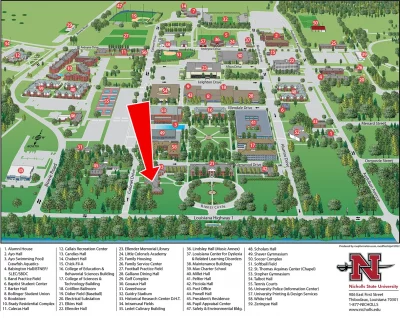Introduction
Private loans are available to students who are not eligible for federal financial aid or who need additional funds to meet educational expenses; however, Federal Title IV funds may be more favorable than private loans. Private loans are expensive and should only be borrowed when all other resources, such as Stafford or PLUS loans, have been exhausted. These loans do not offer the same benefits as Federal Financial Aid and are subject to higher interest rates because they are not guaranteed by the federal government. Since this type of loan is based on your credit history, some lenders may require a co-signer. Always remember that these are loans of last resort.
After clarification from the Department of Education concerning the federal regulations on providing information to students regarding specific lenders and preferred lender arrangements, our office will no longer post nor will we verbalize to students the names of private loan lenders. Students are encouraged to visit multiple lenders’ webpages to verify the interest rate, repayment options, fees charged, and borrower benefits. Our office does not endorse any lenders, receive any incentives, nor do we have any arrangements or agreements with any lenders.
Things to Consider when Selecting a Lender
- Applications and Eligibility: Requirements vary according to lender. Some of the most common requirements are listed below.
- The borrower:
- must be an undergraduate or graduate student in a degree or certification program
- must be enrolled at least half-time
- must be a creditworthy borrower or a borrower with a creditworthy cosigner
- must be maintaining Satisfactory Academic Progress
- may be required to be a U.S. citizen, permanent resident, or eligible non-citizen.
- The borrower:
- Interest Rates and Fees: Many education loans involve fees. Fees are usually added to the amount you requested to borrow – but sometimes they are deducted from loan proceeds. Consult your selected lender and read your promissory note carefully to determine the fees associated with your loan.
- Repayment and Deferment: Lenders are often willing to allow deferment of payments while the borrower is enrolled in school at least half-time. During this time, interest may accrue, but the student does not need to make any monthly payments. Contact the lender for specific options.
- Borrower Benefits: Borrower benefits can significantly alter the cost of your loan. Make sure you research the fine print on a lender’s borrower benefits and keep up your end of the bargain.
Where can I find alternative loan lenders?
- Your bank, credit union, or other financial institution can be a good place to start your search for a reputable lender; however, you should always compare several loan options or lenders.
- Employers sometimes help pay for a student’s education by offering financing options of their own. For example, some employers help employees with education expenses such as education through private loans, through automatic deductions from paychecks, and other financing options.
- Use the internet. Search websites that list alternative lenders.
Questions to Ask Prospective Lenders
- Can the application be completed online?
- What is the approximate time it takes to obtain a decision for loan approval?
- Is a co-signer required?
- What is the minimum and maximum loan amount per year?
- Are there minimum enrollment requirements?
- Is the interest rate fixed or variable? If variable, how frequently can the rate change?
- Does the interest rate change when I enter repayment?
- What fees are applied to the loan and when and how are they applied?
- When does repayment begin?
- Is the interest and/or principal deferred while I am in school?
- What are the repayment options and are there any repayment benefits?
Application Process
- Consult with the Office of Financial Aid to determine your eligibility for Federal Title IV Financial Assistance to ensure that you have exhausted all other funding options prior to applying for a private loan.
- Complete the Application & Pre-Approval Process with the lender of your choice. The lender will notify our office if you have been pre-approved and request certification.
- Complete a Self-Certification Form. This can be completed electronically with your lender.
- Alternative loan applications may ask that you enter a requested loan period, or the dates for which you need a loan. Use the dates listed below.
-
- Fall and Spring
- Starts August Ends May
- Fall Only
- Starts August Ends December
- Spring Only
- Starts January Ends May
- Fall and Spring
Nicholls will check your eligibility. If you are eligible, our office will certify the loan amount you have requested not to exceed your Cost of Attendance.



